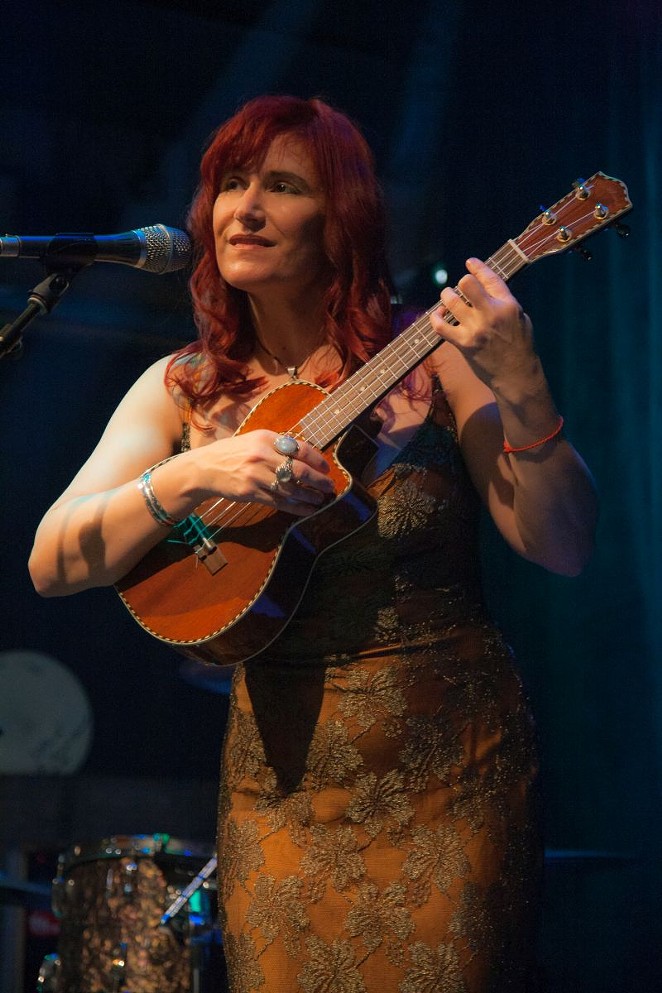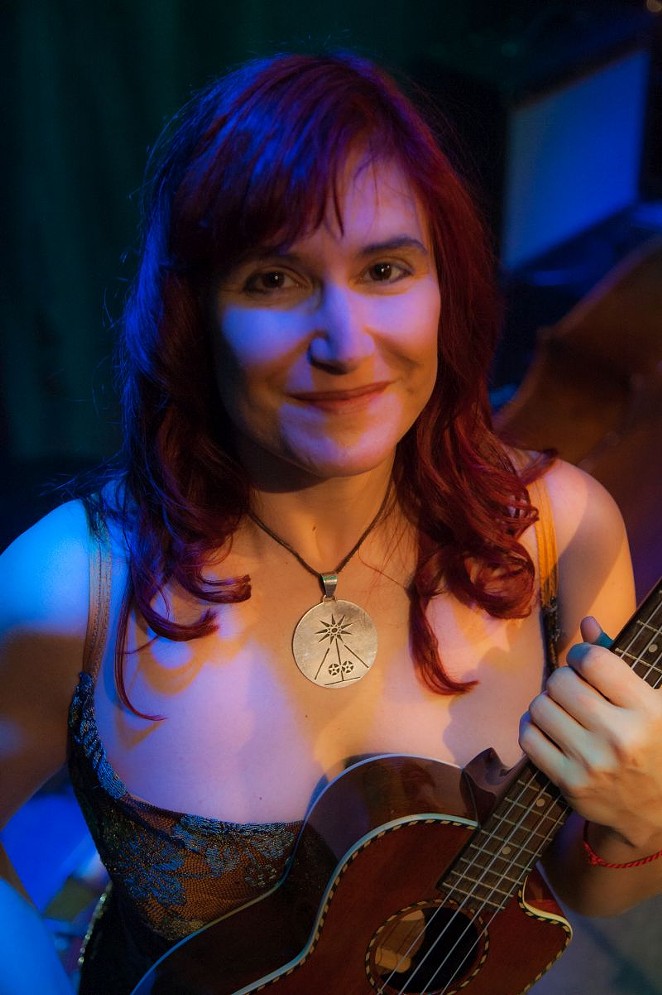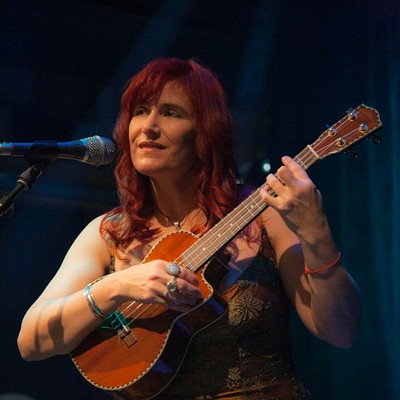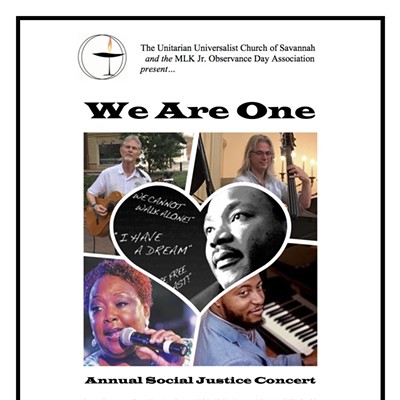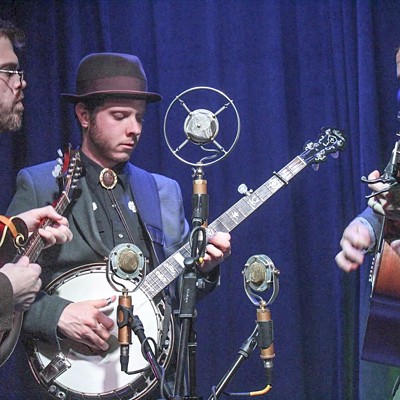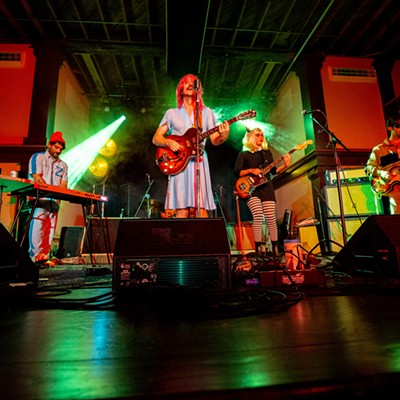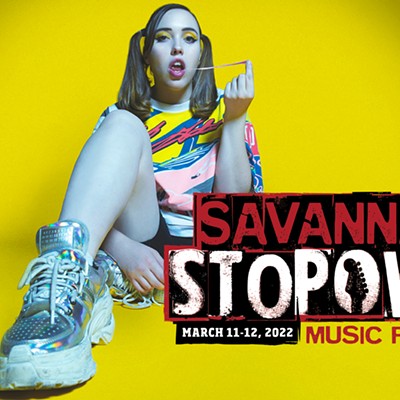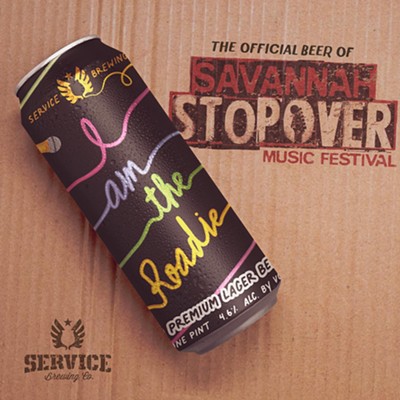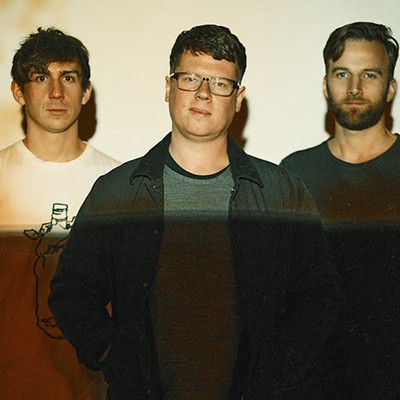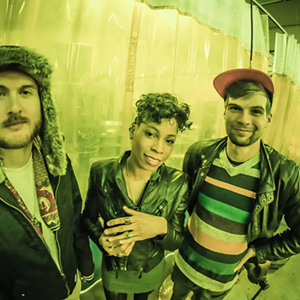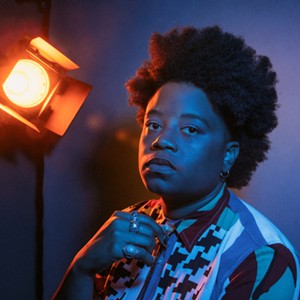SAVANNAH'S Josephine Johnson has made quite the name for herself with her unique brand of folk rock that recalls the early days of the Buckingham/Nicks era of Fleetwood Mac, blended with the vocal power of 10,000 Maniacs and Natalie Merchant.
Originally from Indiana, Johnson has become a local staple despite having lived quite the nomadic and storied life in the past several years.
Johnson’s new release, The Spark, is a gorgeous collection of songs produced by the esteemed John Vanderslice and recorded in San Francisco at his legendary Tiny Telephone studio.
Surrounded by a group of notable session players and recorded entirely to tape, The Spark is a huge step forward for Johnson and her recorded output - and she’ll be celebrating the momentous occasion with an album release show at the Unitarian Universalist Church of Savannah Sept. 23.
When we spoke to Johnson ahead of her album release show, she had just arrived in Nashville for some shows and kindly agreed to get up at a rather ungodly hour and give us some insight into the making of her wonderful new release.
Tell me about working with John Vanderslice. How did that come about?
I lived in California for, like, 12 years, and I had a few friends that had recorded with him. Some of the people that I knew enjoyed their experiences. I wanted to work on analog tape, and he’s kind of known for that. And this is the genius of John - he knows all the names and numbers of everything that he has over there. And I don’t know, that’s just not my thing [laughs].
Was this the first time you’d done an analog record?
Everything I'd done before was in the digital environment. So you could punch in and punch out. But on tape, if you don't like it, you can't change your mind because then you have to re-record what you just did.
And it becomes that much harder to fix things.
Right!
Did you find that daunting? Or did you embrace the challenge?
By the time I got there, I had two, two-and-a-half years' worth of songwriting and playing the songs out. So the songs themselves were pretty well-rehearsed. And then when I got to the studio, the session players that I worked with spent two days rehearsing together. A lot of it we tracked live, and we'd go back and do overdubs on a couple different things.
When you were doing overdubs, was a lot of it spontaneous?
We pre-planned everything! We went over everything in rehearsals. I'm not a drummer, but I'd communicate – "I want this to sound like Mick Fleetwood." And Carly, our lead guitar player, knew that I didn't want it to be saturated with too many notes. Lead guitarists can sometimes be challenging, but she knew exactly [what to do]. But yeah, we went back over and did most of the vocals. We did everything mostly live, and the only vocal that was original was a song called "Reclaiming My Time."
Some people like to do 25 vocal takes, and then it gets to the point where you start not being able to tell the difference between take five and take 25. Do you limit it to a small amount of takes per song?
It pretty much depends on the song. I would say that everything was done in the first two or three takes. The only one that we really worked on was "The Spark," because that song, to me, is very important. And there's a certain way that I wanted those vocals to come across.
When I perform it I use an SM58 mic, but when you’re in the studio you’ve got a great condenser mic that can hear the sound of your tonsils and the back of your throat. So I wanted to make sure that everything was very measured. That took a couple of more takes. But usually no more than three or four takes.
What were some of the lyrical themes you were going for on the record?
I think there’s a thread through it. The underlying part of this album is to honor yourself and be true to yourself. And that’s an easy thing to say, right? Because I think it takes people a long time to figure out who they are. And then once you figure out who and what you are, not caring about how people react. So a lot of that is woven into the songs in different ways.
“The Spark” is definitely for anyone who’s been stepped on. I’ve been through very challenging things in the last four years. Before I left Humboldt County, I was teaching at a summer camp and I came back home to find that my apartment had been broken into and all my stuff was gone. All I had were my instruments and everything I’d taken to teach at the camp. That was the impetus for me to get my stuff together and go to Los Angeles.
Los Angeles was lovely, and I was making great inroads there and working on songs. I was living in HM157, an artist collective, and my house burned down. I made The LAist [laughs]! That’s how I got into The LAist, because my house burned down. And that’s what sent me back here. So the theme of “The Spark” is – the thing that makes you who you are, you have to remember that, and you can’t let outside forces take that away.
It’s so easy to get bogged down by the grind of the whole thing and the industry side of it, but when big changes happen that’s kind of when you realize that music is who you are. It’s cool that the themes of what you were writing reflect that music is what you do and it’s your identity.
And by extension, I do try to take it beyond a diary when I write. My goal is that it resonates with other people and that it inspires them.
Do you have a particular story from the studio, or does anything stick out in your mind from the sessions that was significant to you?
I don't really have any great anecdotes other than this – for 10 days, I got to work with people that I didn't know and we communicated with music. I took very seriously what I brought to them, and working with people like that was a flag or a guidepost that said, "You're on the right track. These are the kinds of people that you need to be around, and this is the kind of thing that you need to find more opportunities to do."
It was a wonderful experience. You have to pay for that access, but to be heard and understood, and to have everything come out the way that it did, was great.

